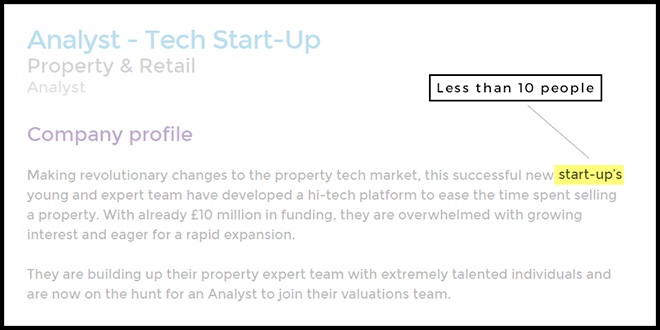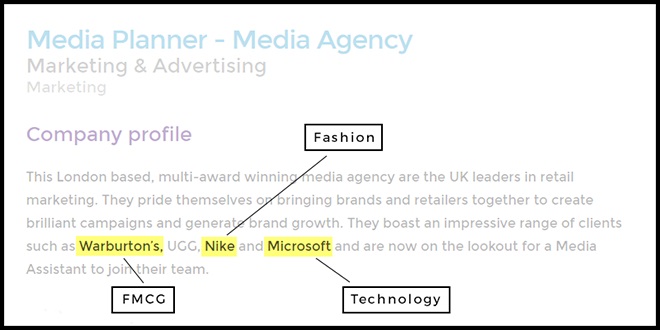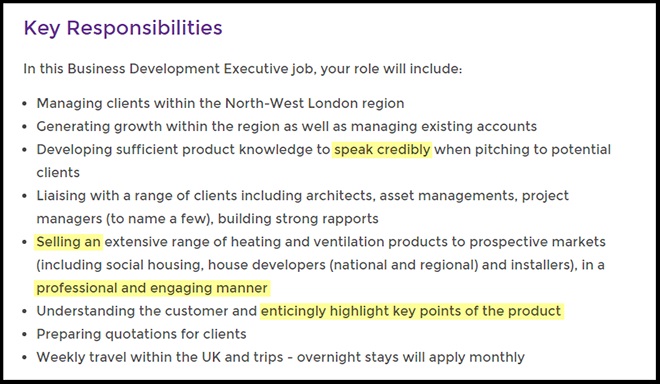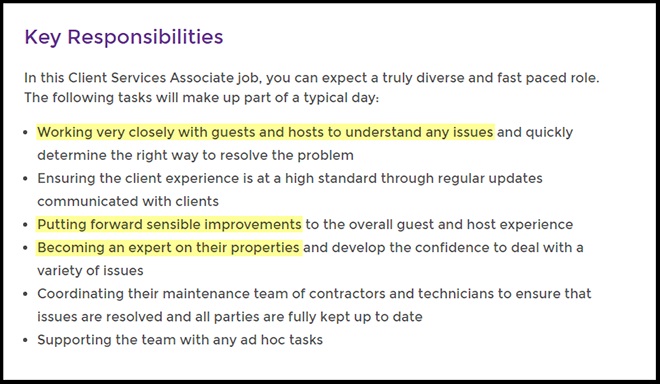You hear it all the time; “you need to tailor your CV for every graduate job application you submit”.
And it makes sense – the more tailored your CV is, the more relevant it will seem and the more attention it will get.
The problem is, that there is very little advice on how to tailor your resume effectively.
That’s why we’re here to help!
With up to 15,000 graduate CVs dropping onto the Give A Grad A Go radar every month, we’ve come to understand which CVs make it onto the ‘yes’ pile…and which don’t.
So, we’ve created this step-by-step guide to tailor your graduate CV for every graduate job application you make.
Why tailoring your graduate CV matters
The best tailored CVs always match exactly what the job description is asking for.
In this guide, we’ll break down some Give A Grad A Go job descriptions and provide actionable examples to help you understand how to customize your graduate CV for success.
Tailoring your CV to match the company

When reading the company description, focus on two key factors: their size and sector.
The company’s size will tell you a lot about the working environment and the level of responsibility they will most likely expect you to take on.
Small businesses and start-ups, for example, are often looking to expand rapidly, so they want people who will be ready to face new situations and have an eagerness to get stuck into their work and help the business succeed.
Bigger businesses will be looking to see if you can hold your own and not get lost in the crowd.
In your graduate CV, you can showcase this through examples such as:
- “Promoting personal ownership and accountability of tasks while thriving in fast-paced, deadline-oriented environments.”
- “Possessing a strong commitment to team environment dynamics with the ability to contribute expertise to meet company objectives.”
Pro tip: avoid vague phrases like “assisted with” or “contributed to.” Be specific about your achievements.
If you drop in the size of the company or team you worked with, always follow it up with how that experience will benefit the role you’re applying for.
Highlighting sector experience and commercial awareness

As well as the company’s sector, does the job description mention any clients the company works with, and which sectors do they belong to?
Employers are always on the lookout for commercially aware graduate hires, so highlighting any relevant sector experience you have could be your chance to show an employer how much useful knowledge you’ll bring with you to the job.
The ‘interests’ section of your CV is a great place to highlight your commercial awareness.
You might be after a graduate job in finance, but if the company has clients within the sporting industry, mention recent sporting achievements or relevant knowledge.
Tailoring your CV for the role
Under the description of the role, take note of who you’ll be working alongside or reporting to, and the situation in which you’ll be working with people.

In a start-up or SME, you might find yourself working alongside many of the senior management team, including the Founder or Managing Director.
You might also find you’re left to work independently either out of office or if your boss is out on business.
As a graduate, you need to show you have the right professional attitude for the job, so if you see ‘integral role’ or ‘pivotal role’ slotted in, you’ll be able to get an idea of how hands-on the role will be and then decide if you’re ready to dive into the deep end.

Here’s an example you could use:
- ‘Keeping senior managers and relevant stakeholders updated on performance through regular and structured reports presented to the board of directors.’
This tells employers that you can manage priorities, meet high expectations, and act as a trusted professional.
If the job involves coordinating with teams or customers, be specific. For example:
- “An effective communicator with the ability to discuss strategies with stakeholders, board members, and employees while providing hands-on support.”
The key to tailoring your CV here is to be specific, which the above examples illustrate.
If the role involves helping customers, give examples of where you were commended for your customer service or you worked to make a process easier.
As a graduate, even if your experience up to this point had been mostly as a Sales Assistant or Bar work, you’ll find you actually have lots of experience in this area, just remember to be clear.
Understanding key responsibilities
When scanning through the key responsibilities, make a note of what you will be doing as well as how you will be doing it.
In the examples below, both sets of responsibilities discuss communicating product knowledge, but there’s a difference in motivation.
Example 1

Example 2

The first example requires someone to ‘speak credibly’, ‘enticingly highlight’, and ‘bring deals from demo to a close’, indicating you will need to persuade and sell to customers and clients.
The second includes ‘providing a clear understanding’ and ‘handling queries users may have’, which implies you will be advising and informing, and selling will not be the core part of the role.
Think about how your experience, both past and present matches up with the tasks of the role you’re applying for.
Have you worked in the sector before?
How did you deal with customers or clients?
If there are new aspects to the role, what attracted you to it, and what have you done that’s similar?
These are all worth noting down, especially when attempting to prevent any concerns regarding experience.
Making sure the role will meet your expectations is also something to look out for when reading through the job responsibilities.
Whether you’re looking for a step up or step across the industry, these are all aspects to consider when ensuring this is the right role for you.
Focusing on job requirements
Many requirements found in job descriptions are generic – the key is to know the context in which you will be expected to use the skills. e.g. anyone can ‘communicate’ but negotiating, presenting and explaining, while all forms of communication are different.
If you lack some requirements, weigh whether it’s worth applying. Alternatively, explain how you’re addressing the gap (e.g., through self-study or certifications).
Quick tips to tailor your CV: summary
- Analyze the job description thoroughly.
- Highlight relevant skills, achievements, and experiences.
- Tailor your CV to match the company’s size, sector, and culture.
- Emphasize transferable skills to fill any experience gaps.
Still need help tailoring your CV?
If at this point you’re still not sure you’ve quite got the knack for tailoring your CV, there’s always the option to try a CV-writing specialist like Purple CV.
If you are applying for creative jobs, why not think outside the box with a super slick CV?
Find more career advice on our graduate careers advice – or check out the latest grad schemes and jobs in the UK!






